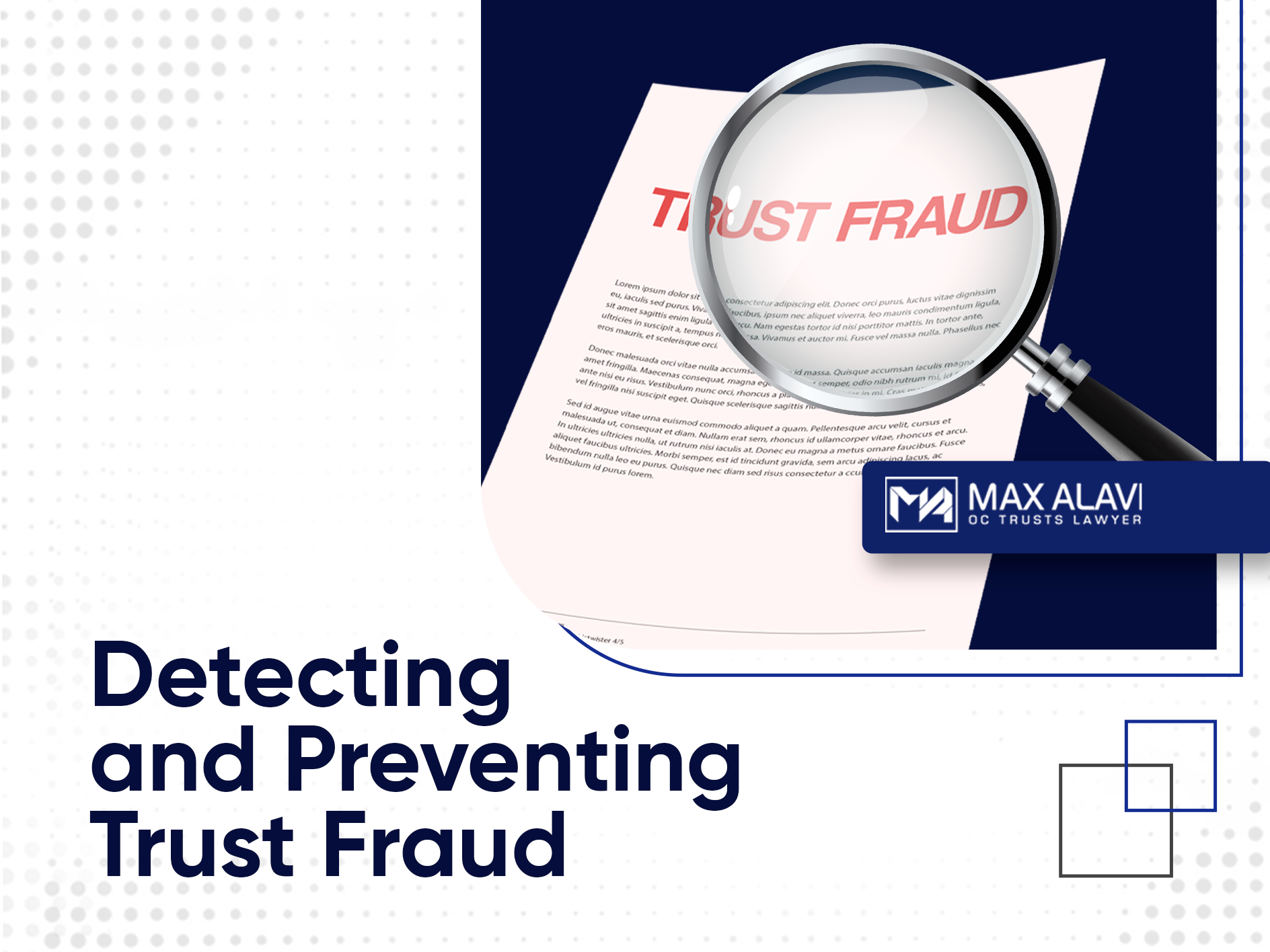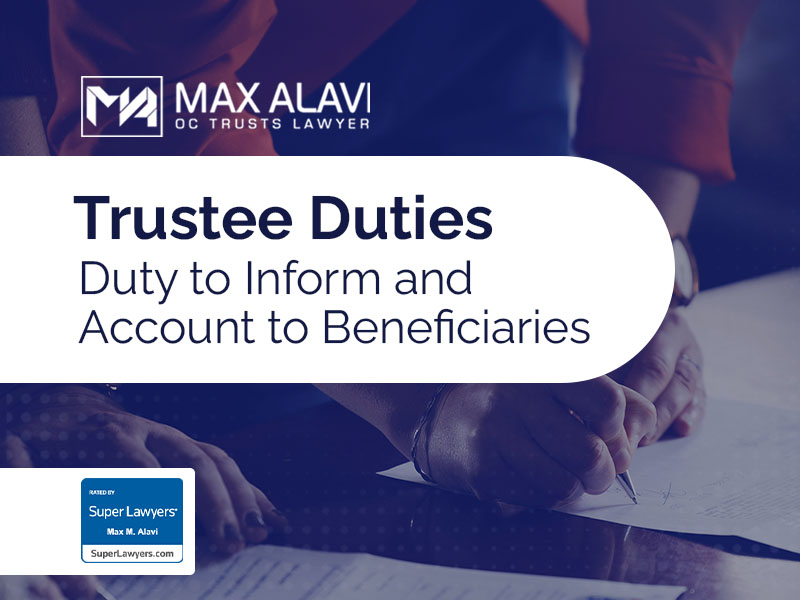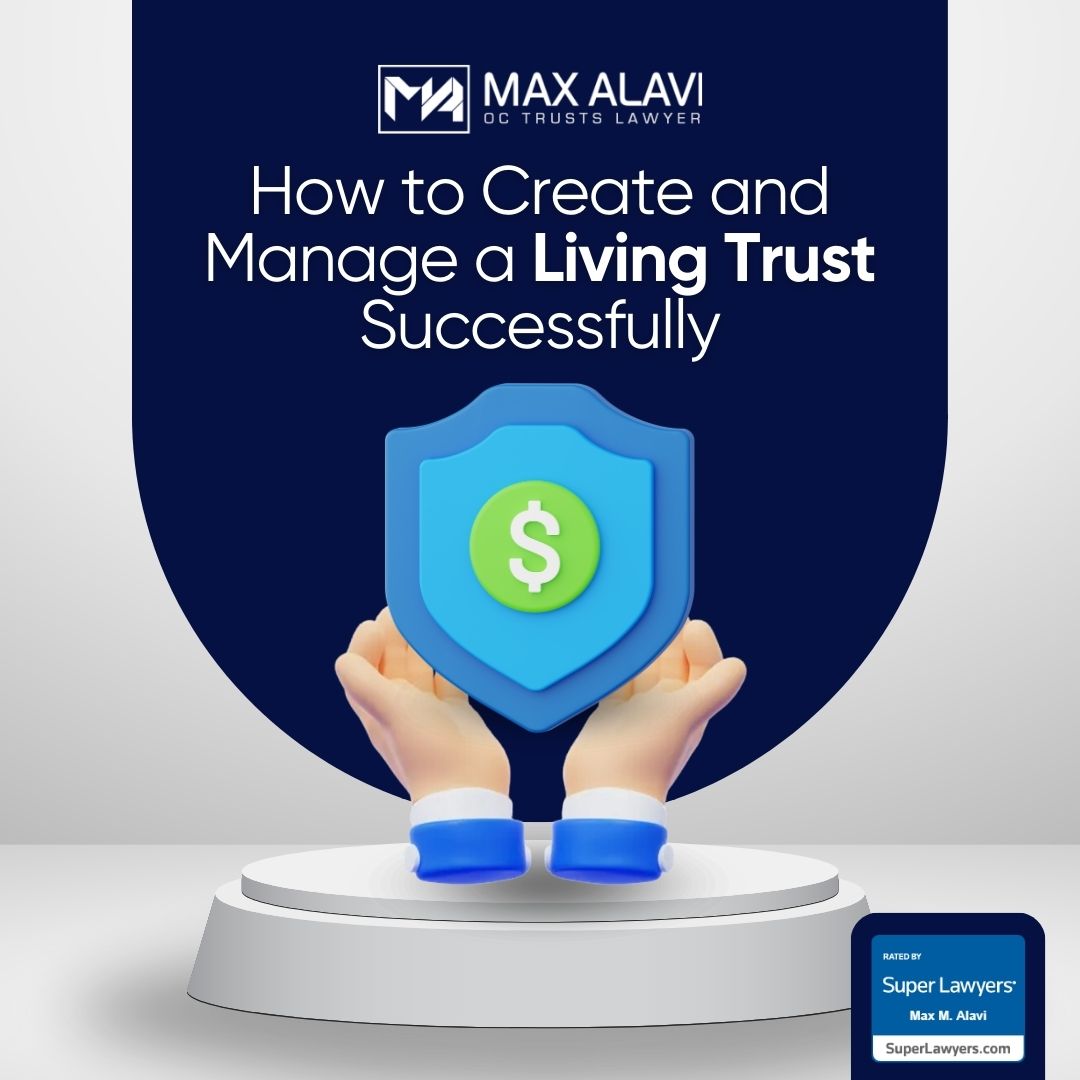Living trusts are important estate planning documents, yet maintaining their integrity requires diligence. Grantors and beneficiaries alike should be alert to the signs of trust fraud and know the best strategies for preventing it. In some cases, the only way to deal with trust fraud may be to connect with a trust litigation law firm. Find out more by checking out the latest post from OCTrustsLawyer.com.
Detecting and Preventing Trust fraud
Living trusts are designed to provide peace of mind during the estate planning process. Through the use of a living trust, the grantor should feel more confident that their end-of-life wishes will be upheld, and their assets will be distributed to the desired recipients. Meanwhile, heirs and beneficiaries can rest easier knowing that they will likely avoid probate, receiving their inheritance with minimal hassle or inconvenience.
In some situations, however, living trusts can cause distrust or confusion. This is especially true if there is reason to think the trust has been made or revised illicitly, unethically, or fraudulently.
It’s critical for grantors, beneficiaries, trustees, and attorneys to be on the same page, mindful of any appearance of impropriety. Indeed, preserving the integrity of a living trust requires all parties to know the signs of trust fraud, to take preventative measures, and to exercise legal remedies when necessary. The latter category might include talking with a trust litigation attorney.
Identifying Signs of Trust fraud
First and foremost, it’s important to be aware of some of the most common signs of trust fraud.
There are a number of red flags that can suggest a trust has been updated or amended duplicitously, or under inappropriate influence. Some of the most common signs of trust fraud include:
- A trust is changed abruptly. Imagine an elderly man has three adult children, and in his living trust he allocated his assets among them equally. One day, all of a sudden, he announces that he’s amended his living trust, leaving all of his assets to just one son. Such a profound and abrupt change may point to some type of undue influence, coercion, or other forms of trust fraud.
- A trust exhibits unexplainable financial transactions. A living trust can be amended at any time, with authorization from the trustee, which means assets may be added or removed from the trust. Unusual or unexplainable transactions are usually a dead giveaway that someone is acting unscrupulously.
- The grantor becomes isolated. If the trust’s creator has withdrawn from family and friends, or spends all of their time with just one family member (often a caregiver), this can serve as a potential warning for undue influence or fraudulent activity.
These are just a few of the hallmarks of trust fraud. Concerns about any of these issues warrants a conference with a trust litigation lawyer.
Preventative Strategies
While knowing the signs of trust fraud is important, it’s equally helpful to take measures to prevent trust fraud.
First and foremost, it’s important to exercise due diligence when choosing someone to serve as a trustee. The trustee can exert a great deal of influence over the direction of the trust, and is often the strongest bulwark against fraudulent activity. However, this all hinges on the trustee being someone notable for their high standard of ethics, their honesty, and their integrity.
Another important strategy for minimizing trust fraud, and for addressing it as promptly as possible, is to conduct a regular audit of the trust. This can be a helpful way to pinpoint any weird transactions or seemingly rash changes. Your living trust attorney can counsel you on how and when to audit your trust.
Legal Remedies for Trust Fraud
If you do suspect that a living trust in which you are a named heir or beneficiary has been the subject of fraud, you may wish to connect with a trust litigation law firm. You may also pursue legal action if you are not named in a legal trust and feel as though you should be.
Your trust litigation attorney will advise you on how to proceed. The first step will be gathering evidence. This evidence can include anything from financial records to medical statements, attesting to the grantor’s mental capacity. Evidence collection can be a make-or-break part of the trust litigation process.
Your trust litigation lawyer will also be able to counsel you on possible outcomes for your legal dispute. Often, problems with a trust can be addressed through negotiation, mediation, and settlement. This will entail some level of compromise, but it also means a more expedient result, with the potential for much less family tension.
In some situations, the only way to arrive at a resolution is to take the matter to court. Your trust litigation attorney can advise you on whether or not this is a worthwhile endeavor, based on the quality of your evidence, the strength of your case, and the value of the estate itself.
In Summary: There are multiple paths for addressing a trust dispute, and all of them involve the legal expertise of a trust litigation law firm.
Connect with a Trust Litigation Attorney Today
Living trusts can be incredibly helpful estate planning documents, yet diligence is required to maintain their integrity. If you have any questions or concerns about fraudulent behavior surrounding a trust, make sure you take the important step of seeking expert legal advice. Reach out to a trust litigation law firm in your area. And if you’re in the Orange County or Los Angeles County areas, contact OCTrustsLawyer.com who has dedicated attorneys specializing in trust litigation. OCTrustsLawyer.com has been awarded the Super Lawyer Designation only awarded to the Top Five Percent of Lawyers in this field.






